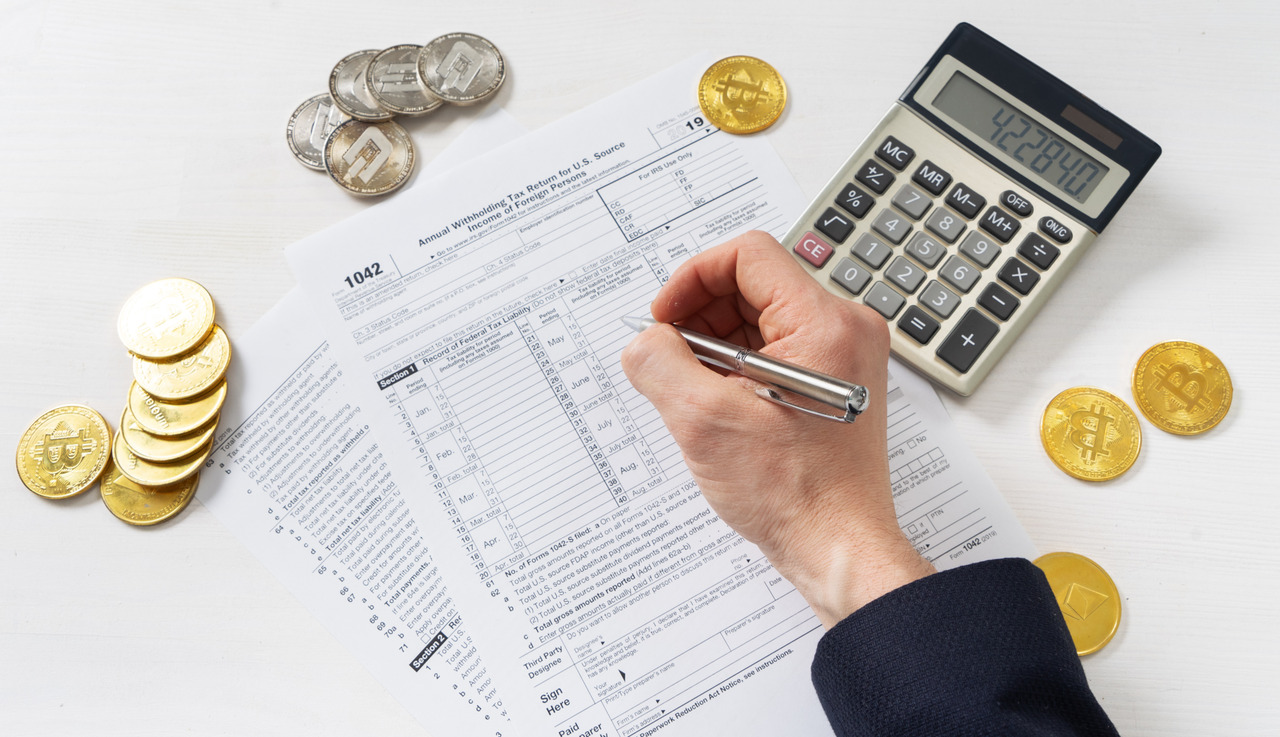The Internal Revenue Service (IRS) has been stepping up its efforts to track down crypto users who haven’t been paying their taxes. During 2021, the IRS seized a staggering $3.5 billion worth of crypto – an amount that constituted 93% of all assets taken by tax enforcement that year according to their annual report. With so much of this amount seized due to tax fraud, it’s clear that the IRS is determined to find out who is failing to pay tax on their crypto earnings.
But can they really track down everyone who is using crypto? Let’s take a look at how the IRS tracks crypto and what you should do to stay on the right side of the law.
Table of Contents
How does the IRS track crypto?

As part of lodging their federal income taxes, all US taxpayers are asked whether they have received or sold any digital assets. But apart from this level of self-reporting, what other ways can the IRS track your crypto activities?
Information from crypto exchanges
The IRS can and does request detailed records from crypto exchanges and other financial service providers. Part of signing up to most crypto exchanges means providing your personal information such as your name, address, and social security number. These Know Your Customer (KYC) regulations are enforced by the US government. It’s important to note that these records can be requested from exchanges by the IRS if needed.
To ensure that you stay compliant with IRS crypto regulations, exchanges like Coinbase, Gemini, and Kraken issue 1099 forms to their customers. These forms are designed to track miscellaneous income such as that derived from crypto trading.
Tracing crypto transactions
The IRS employs powerful tools to trace cryptocurrency transactions via the blockchain. Transactions on blockchains such as Bitcoin and Ethereum are transparent for all to view, meaning it’s possible for the agency to connect ‘anonymous wallets’ with their owners using data obtained from exchanges. The IRS has previously worked with third-party contractors like Chainalysis in order to do this effectively.
Should you report earnings from crypto on your taxes?
There’s no way to get around it, crypto income is definitely taxable. While what constitutes taxable income varies by country, generally speaking, taxable cryptocurrency income includes earnings from trading, staking, and mining. In addition, if you are employed and paid in crypto, such as through bitcoin payments remitted to your wallet address, then this is taxable too.
If you’ve been raking in crypto coins and are worried about Uncle Sam taking a cut, don’t despair. Though it is nevertheless true that all crypto income must be reported on your taxes, you can take steps to limit the damage to your wallet. In specific, you should familiarize yourself with the various deductions and credits that are available. We will be covering these a bit later on in this article.
Is cryptocurrency tax avoidance a criminal offense?
Attempting to reduce your tax bill as much as possible – is perfectly legal. However, tax evasion – which involves deliberately concealing income or assets to avoid paying taxes – is a criminal offense that can result in hefty fines, back taxes, and even jail time.
While cryptocurrency was once thought of as an untraceable asset, the IRS has become increasingly adept at tracking crypto transactions. As a result, any attempts to conceal your crypto earnings could land you in hot water.
How is interest from crypto taxed?
Investing in crypto can be a great way to secure your financial future, however, understanding how tax works for your investments is an important first step. When it comes to crypto interest, it’s important to understand that from a tax perspective, cryptocurrency is seen in one of two ways – either as income or as a capital gain. In most instances, when you receive or are paid interest, this likely falls under the definition of Income Tax.
Crypto and capital gains tax

In the US, crypto is treated as a form of ‘property’ for tax purposes. This means that any gains made by selling or exchanging crypto must be reported as capital gains. The amount of tax you pay on your crypto will depend on how long you held the asset, with those who held their crypto for a year or less paying short-term capital gains tax, and those who held their crypto for longer than a year being subject to long-term capital gains tax.
Whether you’re just dabbling in the world of cryptocurrency or are a seasoned investor, it’s important to know how your tax rate is determined. The federal tax rate on cryptocurrency capital gains ranges from zero to 37%, with three primary factors influencing your specific rate – the accounting method used for calculating gains, the holding period for coins prior to selling, and your overall annual income and filing status.
The IRS also allows taxpayers to deduct a portion of their realized capital losses when filing their taxes. This means that if you lost money on a crypto trade, you can claim this loss as a deduction against your taxable income.
How to reduce the amount of tax you pay on cryptocurrency

Harvesting your losses
As mentioned, the IRS allows you to deduct a portion of your realized capital losses when filing taxes. Harvesting losses can be a great way of reducing crypto taxes. Think of it like this: if an asset is sold at a loss of $1,000, that amount can be used to reduce your obligation on crypto gains and give you more money back when filing taxes.
HODLing your coins
A taxable event is triggered when you exchange or trade crypto, holding on for dear life (i.e. longer periods of time) means that you won’t be hit with short-term capital gains tax. Remember, successful crypto investment should be regarded as a long-term game of chess, not a short-term checkers match.
Cash in during low personal income years
In a year when your income is low, taking profits from cryptocurrency gains can be beneficial for reducing your tax bill. The taxation rate on disposals of cryptocurrencies depends on the personal taxable bracket in that particular year; thus, certain investors may choose to cash out their crypto earnings during times when their reported income falls below $40,000 – which means they’d pay 0% taxes! This tactic could result in significant savings down the line.
What is the future of crypto tax?
The global proliferation of digital currencies is bringing enormous opportunities for investors, and also major implications when it comes to taxation. As technological advancements allow for more sophisticated tracking and monitoring of crypto transactions, governments are likely to increase their scrutiny over the way investors are taxed.
Crypto users will soon benefit from specialized tools designed to make claiming crypto taxes easier and more transparent. Popular tax software platforms are already offering tax returns for crypto investors. However, this could become even more automated via the use of APIs to instantly and accurately bring all of a user’s crypto transactions into their tax return. Similarly, advancements in blockchain technology provide the very real promise of real-time reporting of relevant transaction data to the IRS, thus eliminating any discrepancy or fraud.
Final thoughts

Cryptocurrencies are creating a whole new type of asset that comes with unique considerations. As the fair market value of your cryptocurrency holdings changes, while they’re held in your portfolio, those capital gains must be reported and are subject to taxation. It’s in your best financial interest to keep track of your crypto profits and losses, so you don’t run into costly penalties or miss out on potential tax deductions at tax time.
Being aware of your legal obligations and utilizing the right tools to make crypto tax filing easier can help you manage your crypto earnings and taxes more smartly.
With finances continuing to become increasingly digitalized, cryptocurrency taxation will be an ever-evolving issue. Therefore, getting ahead and staying informed of the changes in crypto tax policies ensures that you stay compliant no matter what! To avoid getting into a situation where you owe taxes on crypto, be sure to prepare ahead and ensure that you are correctly filing your cryptocurrency taxes.













